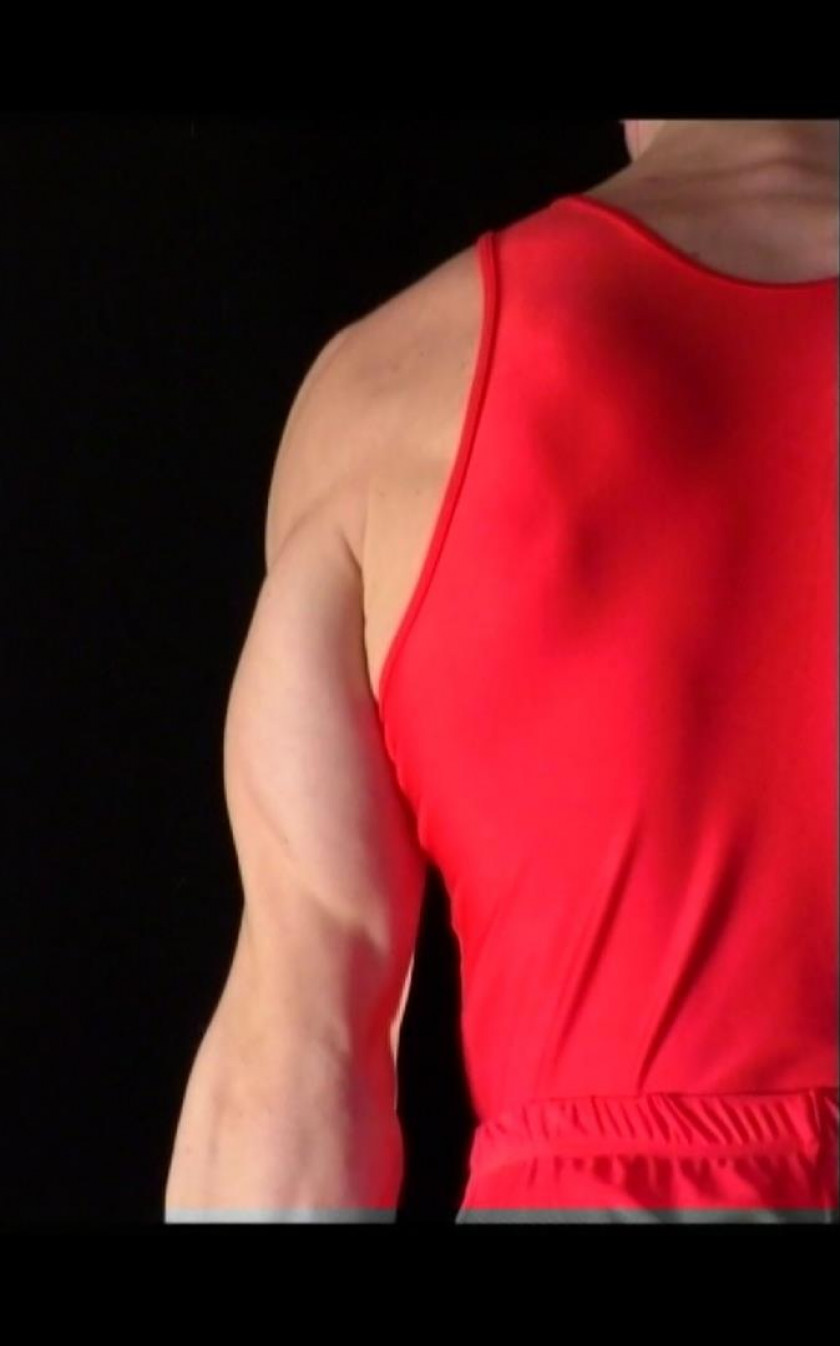The Prize Song (from R.)
video


2001
Video, 4:3, loop, colour, sound, 2'38''
With a career initially linked to dance, João Penalva dedicated himself to the visual arts from the 1990s onwards, becoming one of the most important Portuguese artists. A milestone in his career was representing Portugal at the Venice Biennale in 2001, where he presented the installation R., inspired by Richard Wagner's opera Master Singers of Nuremberg. This work is an exemplary reflection of Penalva's interdisciplinary nature, combining references from dance, theatre, music and literature.
A central part of this installation was The Prize Song, a video accompanied by photographs of singing competitions. Over a constant black background, the video shows fragmented images of a male gymnast on the rings, wearing a red swimsuit. The extreme close-up focuses on the bandaged wrists, the hands rubbing magnesium powder, the tensed upper limbs, the suspended rings, and the acrobatic movements. The precise execution, marked by swinging movements, rotation, suspension and static stops, creates a hypnotic dynamism, where red appears and disappears in a pulsating rhythm. The absence of a space-time dimension, combined with the chromatic intensity and looped repetition of the images, is amplified by the real sounds of the movements, which play a crucial role in the sensory immersion provoked by the video.
The work takes on a metaphorical role by articulating the various narrative nuclei of R., creating a dialogue as in the plot of the opera. The title also evokes Portugal's performance at Eurovision 1969, when, despite the quality of the song, which became historic, the country came last. This analogy reflects the competition intrinsic to the Venice Biennale.
In its poetic and conceptual dimension, João Penalva's work leads the viewer through enigmatic narratives, in which the threshold between the real and the fictional becomes subtle and almost imperceptible.
Adelaide Ginga